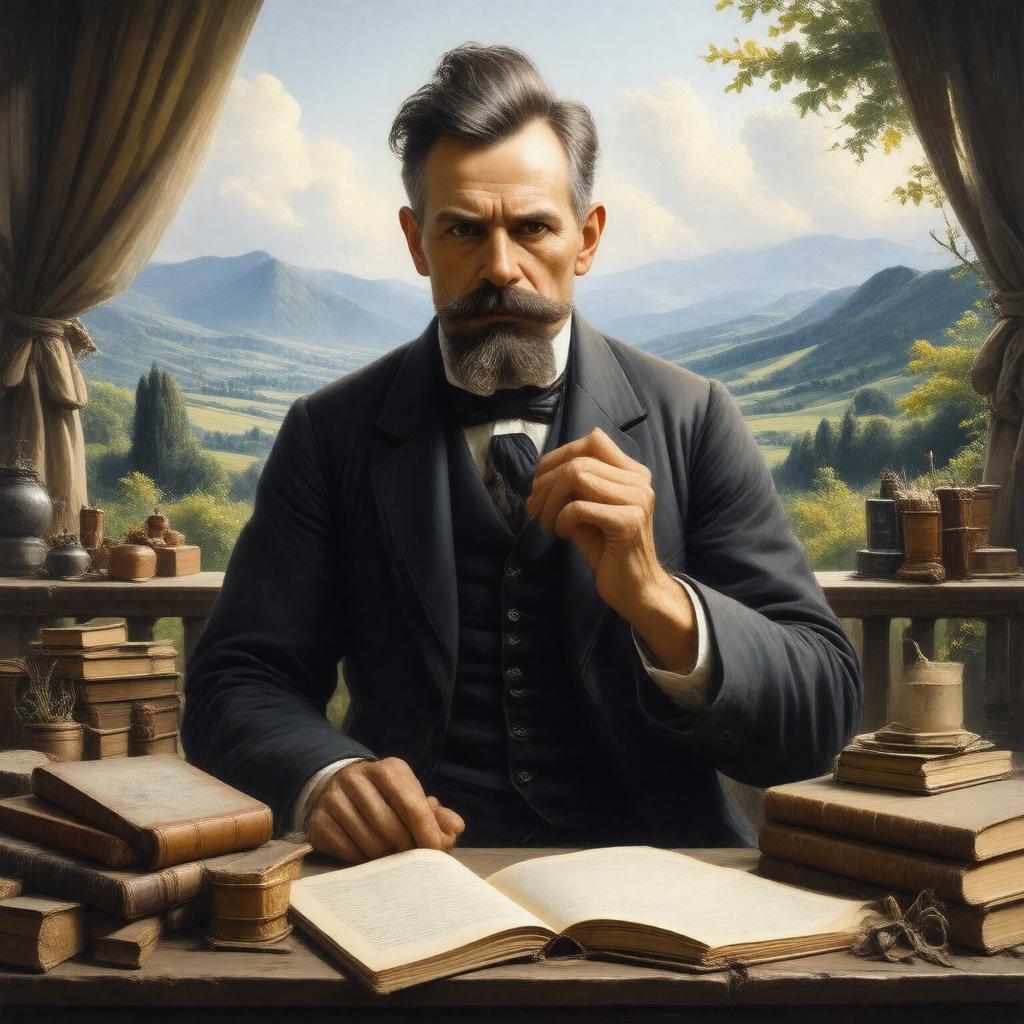Prompt
Create an image of Friedrich Nietzsche, a 19th-century German philosopher, sitting in a contemplative pose, surrounded by books and papers, with a scenic view of the German countryside in the background, reflecting his love for nature and his philosophical ideas. The style should be realistic with a hint of romanticism, capturing the intellectual and artistic essence of Nietzsche's personality. Depict him wearing attire typical of his era, with a thoughtful expression, symbolizing his profound influence on modern philosophy. Include subtle hints of his notable works, such as "Thus Spoke Zarathustra" and "Beyond Good and Evil", in the scene. The overall mood should be introspective, conveying Nietzsche's critique of traditional morality and his concepts of the "will to power" and the "Übermensch".

